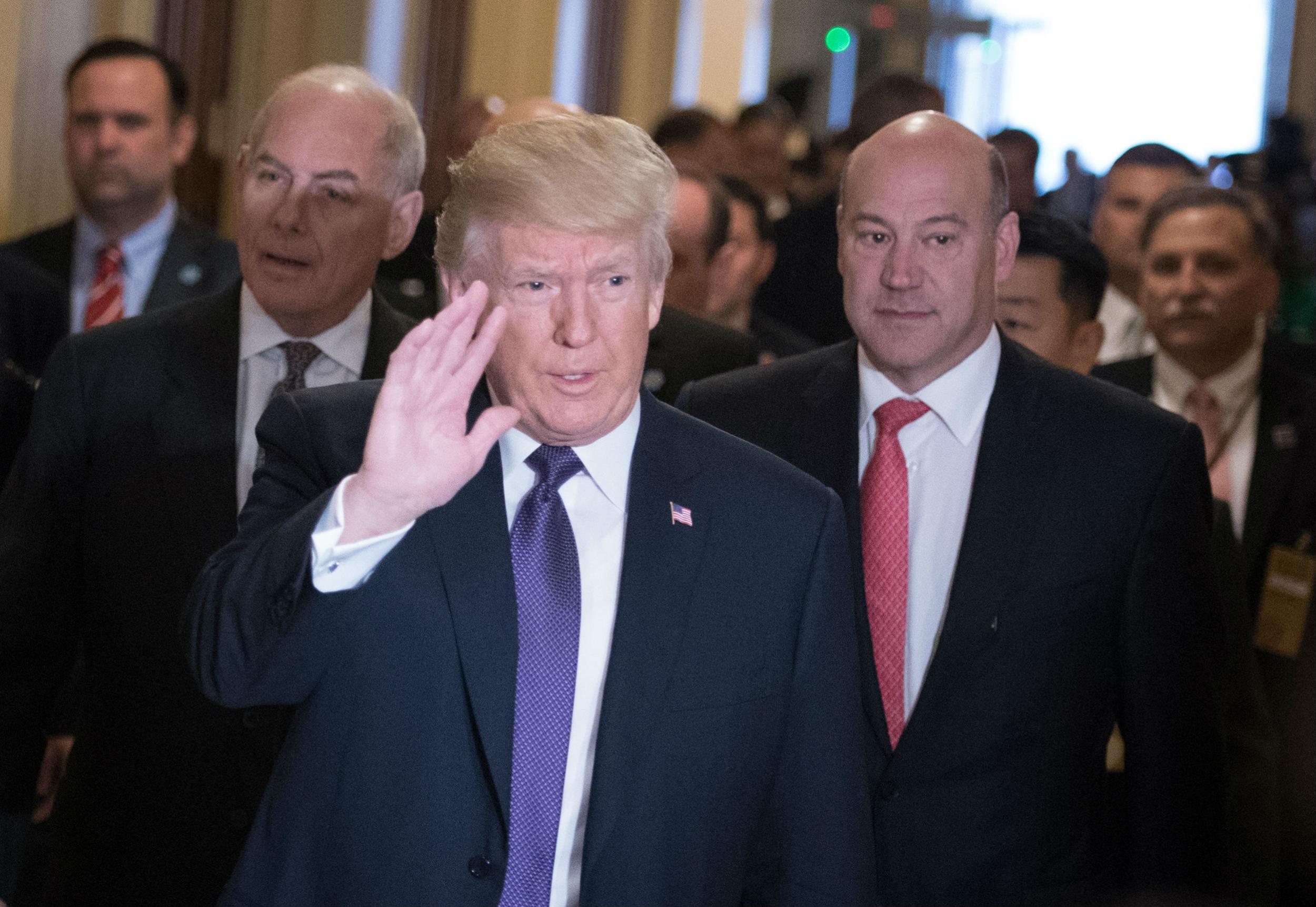President Trump set to impose new tariffs despite the threat of international trade war
Which countries might be exempt from the import tax is unclear as the White House prepares to release its plan

Your support helps us to tell the story
From reproductive rights to climate change to Big Tech, The Independent is on the ground when the story is developing. Whether it's investigating the financials of Elon Musk's pro-Trump PAC or producing our latest documentary, 'The A Word', which shines a light on the American women fighting for reproductive rights, we know how important it is to parse out the facts from the messaging.
At such a critical moment in US history, we need reporters on the ground. Your donation allows us to keep sending journalists to speak to both sides of the story.
The Independent is trusted by Americans across the entire political spectrum. And unlike many other quality news outlets, we choose not to lock Americans out of our reporting and analysis with paywalls. We believe quality journalism should be available to everyone, paid for by those who can afford it.
Your support makes all the difference.Facing down warnings from the international community and even members of his own party, President Donald Trump is refusing to budge on his plans to impose new steel and aluminium tariffs.
Noting that he would make a formal announcement later in the day, Mr Trump told his Cabinet members that he would implement the tariffs in largely the way he operated as a businessman: Based upon his assessment of individual countries and their trade relationship with the US, and whether Mr Trump thinks the US is being taken advantage of.
"I'm sticking with 10 and 25 [per cent] on the country, and I'll have the right to drop out countries or add countries," Mr Trump told his Cabinet Thursday, referring to the tax rates he is planning for aluminium and steel, respectively.
But, while Mr Trump has been steadfast on the percentages he is planning, the fluctuating message form the White House about which countries may or may not be taxed has made the final announcement unpredictable.
During the cabinet meeting, Mr Trump said that he is happy with the progress that has been made to renegotiate the North American Free Trade Agreement (Nafta) with Canada and Mexico, though reiterated that he is prepared to terminate the agreement if he is not ultimately satisfied with how the negotiations pan out. Mr Trump's press secretary, Sarah Huckabee Sanders, indicated Wednesday that good faith negotiations on Nafta could yield tariff exemptions for the two countries.
But, while Mr Trumps says that the Nafta renegotiations are going swimmingly, few observers share that optimism.
Those individuals say that, since the talks began six months ago, little has actually been done. Talks have been stalled over issues that far outweigh steel and aluminium imports economically, including trade for cars, which is a major component of all three countries' economies.
Before Mr Trump is able to impose the tariffs, there may also be a consultation period, which would further draw out the process for the President and his staff. During that time, interested corporations would likely pour money into a major lobbying on the issue, and some Republicans would likely join the effort.
The prospect of the new tariffs have led some in the international community to begin discussing the possibility of a global trade war. Both China and the European Union have said they would retaliate against the US if Mr Trump goes through with his plans. Canada and Mexico have likewise said they would not simply let tariffs slide, though Canadian Prime Minister Justin Trudeau has signalled that he is confident in the strong relationship between his country and the US.
"If Donald Trump puts in place the measures this evening, we have a whole arsenal at our disposal with which to responde," Pierre Moscovici, Europe's Financial Affair Commissioner, said.
Mr Trump has already been rebuffed for different trade policies, too. After Mr Trump withdrew from a major Asia-Pacific trade agreement last year, 11 nations came together to sign the deal without the United States involved anyway.
Reuters contributed to this report
Join our commenting forum
Join thought-provoking conversations, follow other Independent readers and see their replies
Comments